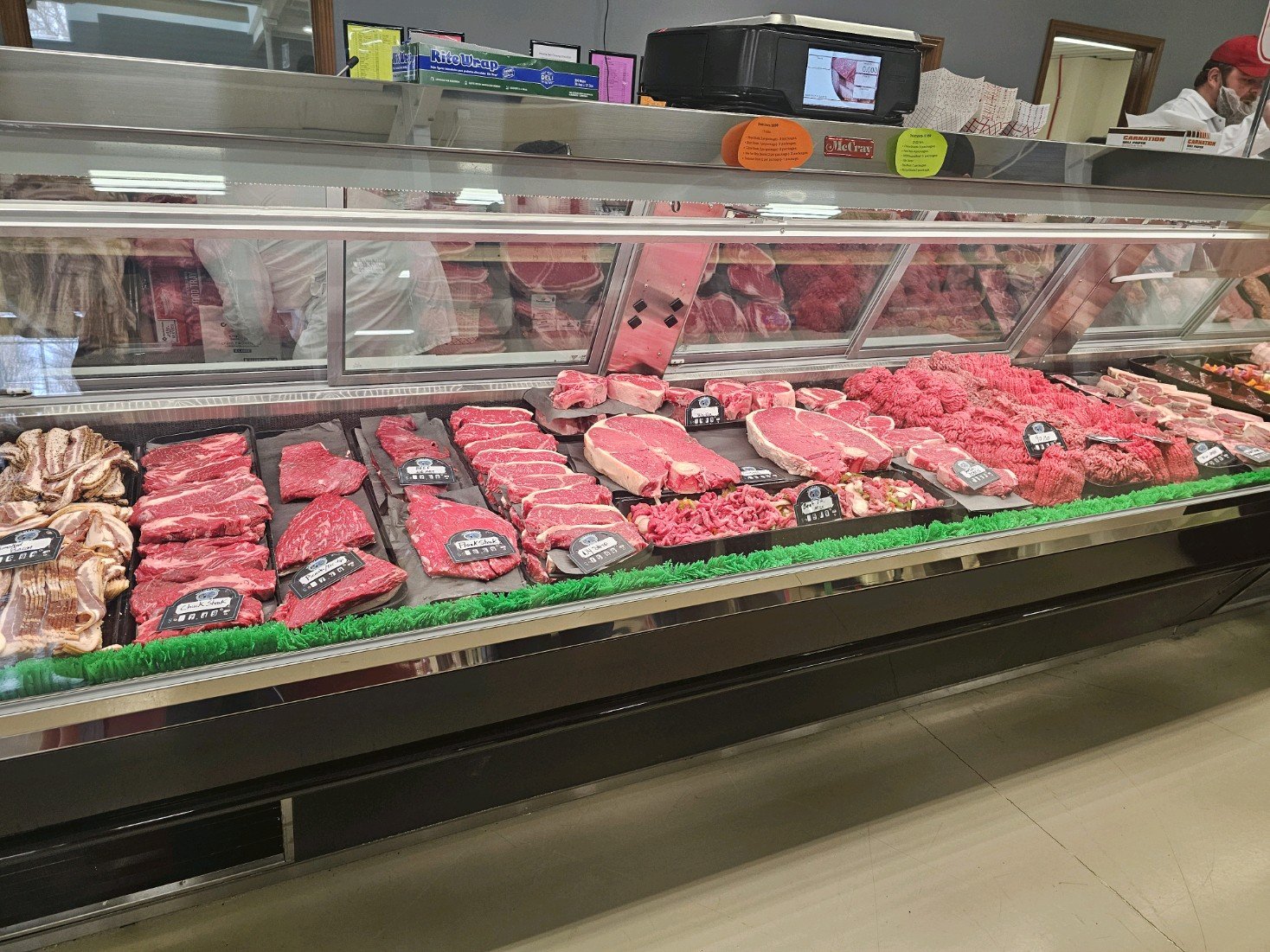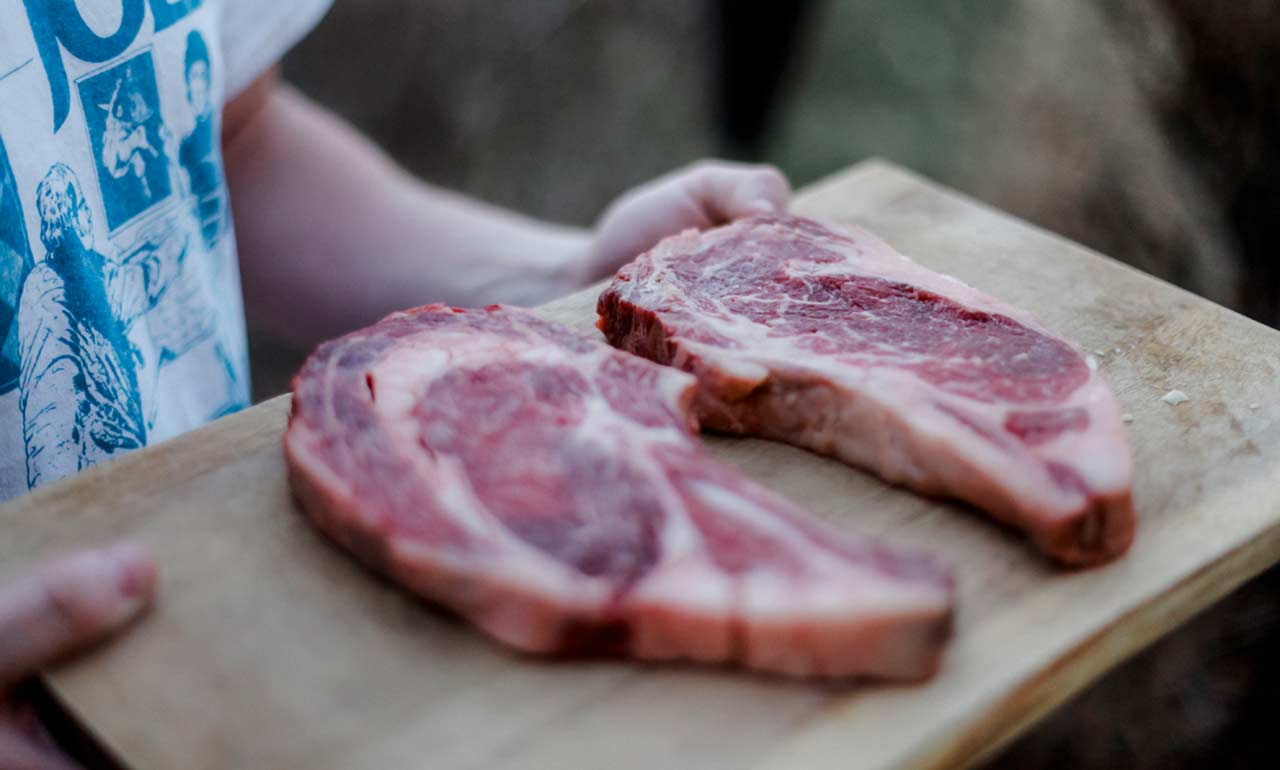Explore the Variety of Fresh Meats at Bagley Meat Market Edwardsville IL Today
Explore the Variety of Fresh Meats at Bagley Meat Market Edwardsville IL Today
Blog Article
Why Shopping at a Neighborhood Meat Market Guarantees Fresh, High-Quality Cuts
Shopping at a local meat market uses distinct benefits that typically go unnoticed by customers accustomed to bigger retail chains. These markets give direct accessibility to fresh, premium cuts, a result of decreased transportation time from farm to respond to. This not only boosts flavor however also sustains regional farmers, promoting area connections and lasting techniques. Strenuous top quality control determines guarantee that each purchase meets high standards of safety and security and freshness. The ramifications of selecting regional extend past instant advantages, motivating a better evaluation of what this selection genuinely suggests for both customers and the local economic climate.
Advantages of Regional Sourcing
In the world of food procurement, the advantages of neighborhood sourcing stand apart prominently. By purchasing meat from neighborhood markets, consumers gain direct access to items that are often fresher and much more flavorful than those found in bigger, commercial grocery stores. Regional sourcing lowers the moment and range food travels from farm to table, which not only enhances preference yet also protects dietary value.

Moreover, local sourcing usually provides transparency relating to the beginnings of the meat. Consumers can ask about the farming methods utilized, animal well-being criteria, and whether the meat is grass-fed or natural. This details equips buyers to make enlightened decisions straightened with their worths.
Quality Assurance Standards
Local meat markets typically comply with extensive quality assurance criteria that guarantee the products provided satisfy high safety and freshness criteria. These requirements generally include various stages of the meat manufacturing procedure, from sourcing to managing and storage space.
First, regional markets often establish rigorous vendor standards, making sure that only reputable ranches and producers are made use of - bagley meat market edwardsville il. This minimizes the possibility of contamination and advertises higher animal welfare standards. In addition, lots of regional meat markets implement normal examinations to confirm that the meat is processed under hygienic conditions, additionally decreasing wellness threats
Temperature level control is an additional critical aspect of quality control. Local meat markets frequently check refrigeration systems to preserve ideal storage space temperature levels, ensuring that meat continues to be secure and fresh for intake. Additionally, the application of traceability systems enables markets to track the origin of their products, supplying transparency and accountability.
Last but not least, staff at local meat markets are often educated to acknowledge indicators of perishing and understand appropriate handling methods. This dedication to high quality control not only boosts the overall standard of the meat however also cultivates consumer depend on, making local meat markets a dependable resource for premium cuts.
Supporting Neighborhood Farmers
Supporting local farmers is vital for promoting a sustainable food system and improving neighborhood strength. When consumers pick to go shopping at neighborhood meat markets, they directly contribute to the resources of farmers in their area. This not only sustains the neighborhood economy but also strengthens the farming field, making sure that it remains lively and sensible.


Additionally, supporting local farmers fosters a feeling of area and connection in between producers and customers. It motivates transparency in food sourcing and instills count on, as customers can establish partnerships with the individuals that raise their food. This direct link ultimately brings about a much more engaged and notified public, which is important for promoting for sustainable agricultural practices in the future.
Lasting Practices
Lasting practices in meat markets play a vital duty in promoting ecological stewardship and making certain pet well-being. Regional meat markets commonly focus on sourcing their products from ranches that apply lasting and ethical farming methods. These techniques include rotational grazing, which aids keep dirt health and reduces carbon discharges, along with decreasing the use of antibiotics and hormones in animals.
In addition, local meat markets normally highlight openness in their supply chains. Clients are offered with information relating to the origin of their meat, permitting them to make educated selections that align with their values. By sustaining regional farmers who practice lasting approaches, customers add to the preservation of biodiversity and the decrease of transport emissions related to long-distance meat like this distribution.
Additionally, several regional meat markets engage in waste reduction approaches, such as making use of every component of the animal and advertising off-cuts that could otherwise go unsold. By fostering a much more lasting strategy to meat consumption, these markets not just offer premium products however additionally contribute positively to the atmosphere and pet well-being. Basically, shopping at a neighborhood meat market lines up consumers with a broader movement towards ethical and responsible food sourcing.
Individualized Customer Care
Buying at a meat market frequently incorporates even more than simply the items supplied; it is also about the experience and the partnerships developed in between clients and personnel. Customized customer support is a characteristic of local meat markets, establishing them aside from larger grocery chains. Knowledgeable personnel put in the time to recognize specific client choices, guaranteeing that each go to is customized to particular requirements.
Consumers gain from skilled advice on cuts, food preparation methods, and prep work suggestions, cultivating a sense of trust and loyalty. This individualized communication allows consumers to ask inquiries and seek recommendations, resulting in notified getting decisions. Staff members typically remember routine consumers and their preferences, producing an inviting ambience that cultivates neighborhood ties.
Moreover, tailored service extends to unique requests, such as custom cuts or certain preparation approaches, which bigger retailers may not fit. This level of interest enhances the commitment of neighborhood meat markets to top quality and consumer fulfillment.
Essentially, personalized customer support not just enhances the shopping experience yet likewise guarantees that customers leave with the finest products fit to their culinary needs, making every visit a rewarding one.
Verdict
Sustaining local farmers cultivates community partnerships and strengthens the local economic situation, while lasting techniques contribute to environmental stewardship. In addition, personalized consumer service boosts the purchasing experience, making regional meat markets a preferred option for customers looking for both quality and honest considerations in their food sourcing.
The effects of choosing neighborhood extend beyond immediate benefits, triggering a closer evaluation of what this selection truly means for both customers and the neighborhood economy.
Supporting neighborhood meat markets additionally contributes find more information to the local economic situation. Local meat markets frequently monitor refrigeration systems to preserve ideal storage space temperature levels, guaranteeing that meat stays fresh and risk-free for usage.Neighborhood farmers are often extra attuned to the certain needs of their areas, expanding crops and raising animals that line up with neighborhood preferences and choices. Sustaining local farmers cultivates neighborhood partnerships and reinforces the neighborhood hop over to here economy, while sustainable techniques add to ecological stewardship.
Report this page